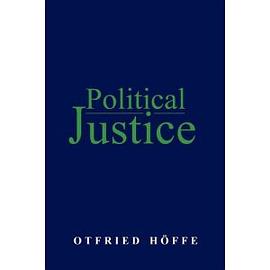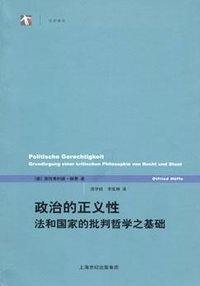Political Justice: Foundations for a Critical Philosophy of
豆瓣
Otfried Höffe
简介
Otfried Höffe is one of the foremost political philosophers in Europe today. In this major work, already a classic in continental Europe, he re-examines philosophical discourse on justice - from Classical Greece to the present day.
Höffe confronts what he sees as the two major challenges to any theory of justice: the legal, positivist claim that there are no standards of justice external to legal systems; and the anarchist claim that justice demands the rejection and abolition of all legal and state systems.
Höffe sets out to continue the 'philosophical project of modernity', the legitimation of human rights, and their guarantee by the state, while at the same time rehabilitating the classical theory of political justice represented by Plato and Aristotle. He questions the success of the positivists in avoiding extra-legal normative claims, and casts doubt on the plausibility of their criticism of the Natural Law tradition. Most anarchists, he argues, rely on an uncritical assumption that social institutions other than states and legal orders do not coerce.
In Höffe's view, some coercion is unavoidable, and the grounds for its justification must be examined. Principles of justice will be those principles which define fundamental rights, and which must be enforced if rights are to be respected.
Jurgen Habermas
‘The great merit of Otfried Hoffe’s book is that it places the contemporary discussion of the state and of justice at the end of a long tradition that begins with Hobbes and includes the crucial phase of the conflict between Kantianism and utilitarianism. The book must also be situated within the context of Hoffe’s own work which, beginning with his magisterial Introduction to Kant’s Practical Philosophy, culminates in his masterly reconstruction of the Kantian Philosophy of Law. Otfried Hoffe may well be the foremost historian of political and legal philosophy in the Western world today.’
Paul Ricoeur
‘The publication of Otfried Hoffe’s Political Justice in English should put pay to any belief that political philosophy in English and in German are mutually inaccessible. In the English-speaking world it was swamped by jurisprudential and sociological thinking. Hoffe confronts these challenges and revives a normative political philosophy. His Kantian account of political justice is refreshingly distinct from Kantian work in English, yet recognizably part of a common enterprise.’



